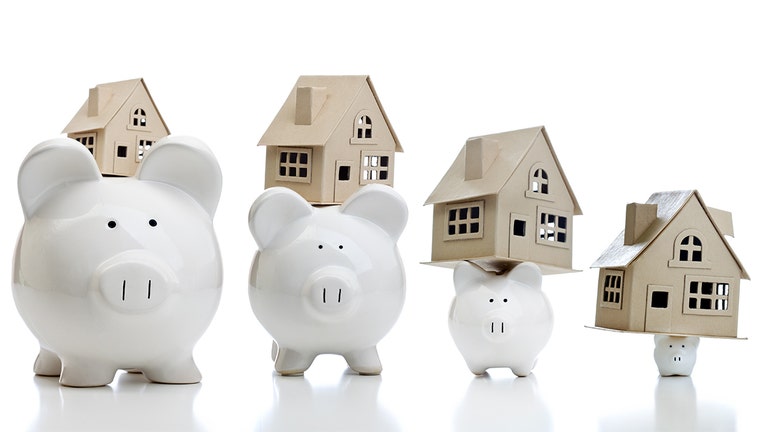Should I refinance my mortgage to consolidate debt?

If you have high-interest debt and some equity in your home, you might be able to get a cash-out mortgage refinance. This article will explain the pros and cons of doing a cash-out mortgage refinance along with some alternative options to pay off you
Did you know that your primary home is an asset - even if you have a mortgage? This is because you can gain equity in your home with each monthly mortgage payment. This equity can be used for various purposes including helping you consolidate debt.
Home equity represents a combination of the amount of principal you’ve paid off along with the increased value of your home. So if you own a home valued at $250,000 a current mortgage balance of $175,000, this means you have $75,000 in home equity.
Mortgage refinance rates are very low right now, so if you have some equity in your home, it may not be a bad idea to consider a cashout refinance loan to pay down debt. Visit Credible to compare mortgage lenders and rate and find the right cashout refinance loan for you.
IS A 15 OR 30-YEAR MORTGAGE REFINANCE BETTER WITH TODAY’S RATES?
Should I refinance my mortgage to consolidate debt?
A mortgage refinance involves getting a new home loan with possibly a new mortgage lender at a lower interest rate. Refinancing can help homeowners save money by lowering their monthly mortgage payments and paying less interest over time. One type of mortgage refinance is a cashout refinance, which is when you borrow more than you owe on the home and receive the difference in cash. This can be used to fund projects for home improvement or even debt consolidation.
Personal factors as well as the housing market can affect mortgage and mortgage refinance rates over time. Luckily, right now low mortgage refinance rates are still available. Check out Credible to compare your current mortgage rate to your prequalified mortgage refinance rates without affecting your credit score.
5 REASONS TO GET A CASH-OUT REFINANCE
Pros and cons of refinancing your mortgage to pay off debt
A benefit of doing a cashout refinance to pay off debt are securing a lower interest rate, especially if you bought your home when mortgage rates were much higher. You can also pay off high-interest credit card debt and other loans all at one time. With the average credit card interest rate ranging from 15% to 24%, taking advantage of low mortgage refinance rates can help you pay down debt quicker and save money. Plus, paying off outstanding debt can boost your credit scoring.
You can explore your mortgage refinance loan options and use Credible's free mortgage calculator to see if this is the right money move for you.
One of the biggest drawbacks of getting a cashout mortgage refinance is that you may be putting your home at greater risk. If you are unable to make your monthly mortgage payment for whatever reason, you would risk losing your home and might owe more on it than you did originally. Also, your loan repayment term could be extended depending on how much home equity you had.
It’s also important to note that if you don’t have enough equity in your home, you may not qualify for a cashout refinance. Most lenders will not approve you for a mortgage refinance until you have at least 20% equity in your home.
On top of this, you will be faced with paying for closing costs and possible origination fees all over again. Visit Credible to compare loan options from multiple lenders and assess fees before you commit to filling out a mortgage refinance application.
MILLENNIALS ARE HURRYING TO REFINANCE THEIR MORTGAGES — HERE'S WHY
Other options to pay off debt
Refinancing your mortgage is not the only way to consolidate debt. If your credit is in good standing, you can try consolidating your debt with a personal loan.
Credible can connect you with lenders that offer rates as low as 3.99% and loan amounts from $600 to $100,000 and it just takes two minutes to get prequalified. If you’d like a better idea of what your monthly payment would be, you can check out Credible’s personal loan calculator.
Another alternative to consider is a HELOC or home equity line of credit. This allows you to tap the equity in your home and draw from the funds regularly like you would with any line of credit. If you can get a much lower rate with a HELOC than the current rate for your debt, it could be a solid option to help you save.
If you have credit card debt, you can also consolidate it by getting a balance transfer credit card. That way, you’ll have a 0% APR for a certain number of months to help you pay down your balance without interest charges.
To learn more about 0% APR credit cards — which enable you to avoid paying interest charges for up to 18 months in some cases, check out Credible's partners and what they have to offer.
DON'T FALL FOR THESE 3 DEBT CONSOLIDATION MYTHS
Final thoughts
The equity in your home is a powerful personal finance tool that can help you meet certain financial goals like consolidating your debt. So long as you have at least 20% equity in your home and have carefully weighed the pros and cons of a cashout mortgage refinance, consider taking the next steps by visiting an online marketplace like Credible to view refinance rates and obtain the cash to pay off your high-interest debt.
4 THINGS TO KNOW BEFORE REFINANCING YOUR MORTGAGE
Have a finance-related question, but don't know who to ask? Email The Credible Money Expert at moneyexpert@credible.com and your question might be answered by Credible in our Money Expert column.

